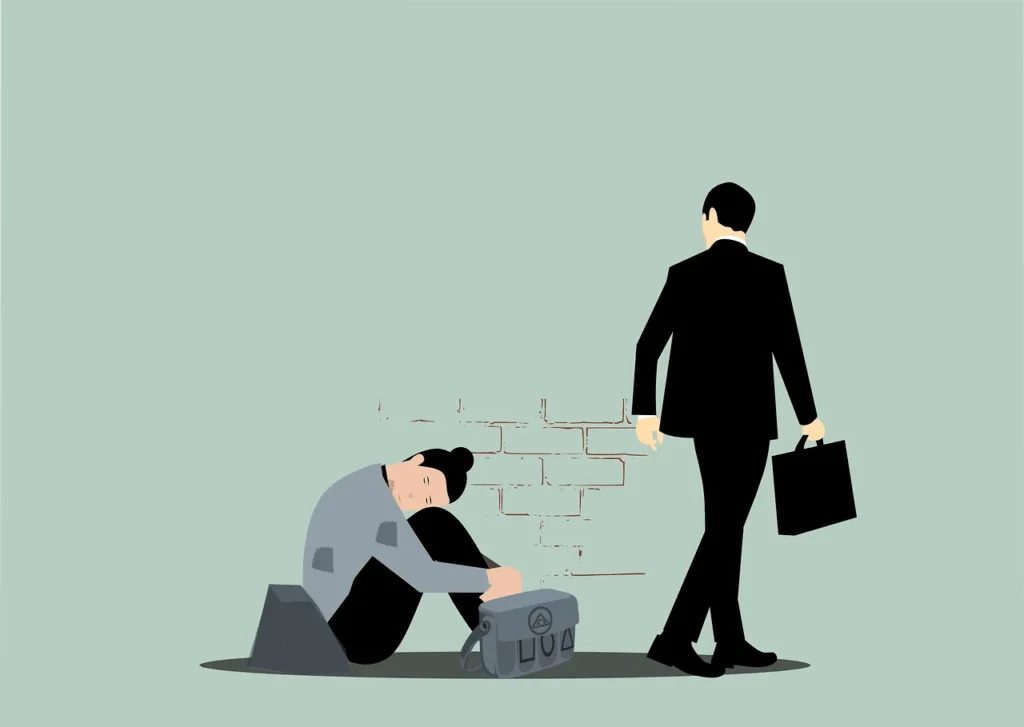Introduction
Modern society often prides itself on advancements in human rights, freedom of speech, economic development, and globalisation. However, beneath the surface of progress lie deeply entrenched systems of exploitation that echo the colonial and slave-based economic structures of the past. While outright slavery and colonial rule have diminished in their traditional forms, their economic blueprints persist in the global economy. This blog explores the economics of exploitation by examining the systems that enable modern slavery and neocolonialism, and suggests actionable measures to build a more equitable economic future.
Economic Exploitation
Economic exploitation occurs when one party gains disproportionately from the labour or resources of another, often through coercion, manipulation, or unjust systems. At its extreme, this includes forced labour, human trafficking, and wage slavery. But more subtly, it manifests through trade imbalances, debt traps, exploitative labour contracts, disparity in global resources, and corporate monopolies.
Exploitation doesn’t require the presence of chains or empires; it thrives in asymmetrical relationships between powerful multinational corporations and vulnerable labour markets, or between developed and developing nations where historical inequities have never been fully addressed.
Legacy of Colonial Economics
Colonialism wasn’t just about territorial conquest; it was fundamentally an economic enterprise. Colonisers extracted raw materials, underpaid or enslaved labour, and exported wealth to the metropole (imperial centre), leaving colonised nations underdeveloped and dependent. Colonial powers imposed monoculture economies, forcing colonies to focus on one or two cash crops or raw materials, making them vulnerable to global price shocks and unable to build diversified, self-sustaining economies.
Even after political independence, many former colonies inherited economic structures designed to benefit the coloniser. Poor infrastructure, weak institutions, and a reliance on exports left them at the mercy of global markets and foreign capital.
Modern Slavery
Despite international laws outlawing slavery, it persists in various forms across the globe. According to the International Labour Organization (ILO), over 50 million people live in modern slavery, including forced labour, debt bondage, and human trafficking.
The economics behind modern slavery are simple but devastating: vulnerable people, often from impoverished regions, are exploited for cheap labour under threat or deception. This allows companies, sometimes unknowingly to minimise costs and maximise profits.
Sectors with modern slavery include
- Agriculture
- Garment and textile manufacturing
- Construction
- Domestic work
- Mining
Global supply chains make it difficult to trace labour practices at every stage. A consumer buying a $5 t-shirt or a $2 chocolate bar may unknowingly support exploitative labour.
Neocolonialism and the Global Economy
Neocolonialism refers to the continued economic dominance of former colonial powers and multinational corporations over developing nations. Unlike traditional colonialism, it operates through:
- Trade agreements that disproportionately benefit richer nations.
- Structural Adjustment Programs (SAPs) imposed by the IMF and World Bank, which force austerity and privatisation in exchange for loans.
- Resource extraction with little reinvestment in local economies.
- Foreign Direct Investment (FDI) that creates dependency rather than self-reliance.
For instance, multinational corporations may extract minerals from African countries, pay minimal taxes, and export profits, leaving behind environmental degradation and little development.
Even the concept of “foreign aid” can be problematic when it serves the donor’s geopolitical interests more than the recipient’s development goals.
Economic Systems that Perpetuate Exploitation
Several economic principles and systems contribute to ongoing exploitation:
- Capitalism without Regulation
Unregulated or poorly regulated capitalism often prioritises profit over human rights. In such systems, labour becomes just another cost to be minimised. The race to the bottom in wages and working conditions leads companies to countries with lax labour laws.
- Debt and Financial Dependence
Developing nations often rely on loans from international bodies or wealthy nations, which come with stringent conditions. This can result in cuts to education, healthcare, and social services, making populations more vulnerable to exploitation.
- Trade Inequities
Global trade is often unfair. Developing countries export raw materials at low prices and import finished goods at high prices, perpetuating dependence and underdevelopment.
- Tax Avoidance and Illicit Financial Flows
Multinational corporations shift profits to tax havens, depriving developing nations of billions in tax revenue. According to the UN, Africa loses around $88.6 billion annually through illicit financial flows.
Measures to Avoid Economic Exploitation
Solving such entrenched problems requires systemic change. Following are the few suggested measures to reduce and ultimately eliminate economic exploitation:
- Stronger Labour Laws and Enforcement
Governments must enforce labour protections, including minimum wages, working hours, and safety standards. Support for trade unions and whistleblower protections can empower workers to report abuse.
- Transparent and Ethical Supply Chains
Corporations must conduct due diligence to ensure their supply chains are free of exploitation. Certifications (like Fair Trade) and block chain technology can help trace the origin of goods.
- Debt Relief and Equitable Financing
Cancelling or restructuring unsustainable debt allows developing countries to invest in their own economies. Financial institutions must offer fair terms, without conditions that undermine sovereignty.
- Reform of Global Trade Rules
The World Trade Organization (WTO) and trade blocs should prioritise equity over profit. Special consideration must be given to the developmental needs of poorer nations, including the right to protect nascent industries.
- Corporate Accountability and Global Tax Reform
Multinational companies must pay their fair share of taxes where they operate. International cooperation is essential to close loopholes and combat tax evasion.
- Investing in Local Economies
Development aid and private investment should support local entrepreneurship, education, and infrastructure. This builds economic resilience and reduces dependence on foreign entities.
- Education and Awareness
Consumers can drive change through conscious consumption. Educational campaigns can highlight the human cost of cheap goods and promote ethical alternatives.
Conclusion
The economics of exploitation did not end with the abolition of slavery or the fall of empires. They evolved, adapted, and integrated into the modern capitalist economy, perpetuating inequality on a global scale. Recognising these systems for what they are is the first step toward dismantling them.
A more equitable world is possible, not through charity, but through justice. This requires governments, corporations, and individuals to align economic activity with human dignity. The goal should not be to eliminate capitalism, but to reform it so that profit no longer depends on poverty, and growth no longer thrives on exploitation.
Equal Distribution of Global Resources for Co-existence






169 responses
**gl pro**
gl pro is a natural dietary supplement designed to promote balanced blood sugar levels and curb sugar cravings.
**mind vault**
mind vault is a premium cognitive support formula created for adults 45+. It’s thoughtfully designed to help maintain clear thinking
That’s a great point about balancing skill & luck in shooting games! It reminds me of the classic approach at nustargame – a solid foundation with modern twists. Finding that sweet spot is key for both genres, honestly!
More posts like this would bring about the blogosphere more useful.
I am actually thrilled to glitter at this blog posts which consists of tons of profitable facts, thanks representing providing such data.